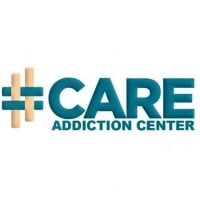Hope for Tomorrow
Drug Rehab Center in Aurora, Illinois
A well-established treatment facility in City, State, dedicated to helping individuals struggling with addiction and substance abuse regain control of their lives by providing effective treatment, personalized care, and a comprehensive range of services tailored to meet their specific needs.
About This Illinois Facility
is a well-established treatment facility located in , dedicated to helping individuals struggling with addiction and substance abuse regain control of their lives. With a focus on providing effective treatment and support, is equipped to address a wide range of addiction issues and provides a safe and nurturing environment for individuals seeking recovery. Whether one is suffering from alcoholism, drug addiction, or any other form of substance abuse, the highly trained staff at is committed to providing personalized care and guidance throughout the recovery process.
At , individuals seeking help for addiction and substance abuse can expect a comprehensive range of services tailored to meet their specific needs. The facility offers different levels of care, ensuring that each individual receives the appropriate support. From detoxification programs to help individuals safely withdraw from substances, to inpatient services for those requiring intensive treatment and structure, provides a continuum of care. Along with individual counseling sessions, group therapy sessions are also provided, allowing individuals to connect with others facing similar challenges and gain valuable insights and support. Additionally, incorporates evidence-based treatment methods, such as cognitive-behavioral therapy and motivational interviewing, to empower individuals and equip them with the necessary skills to maintain long-term sobriety.
Genders
Ages
Modality
Additional
Conditions and Issues Treated
Opioids are a series of medicines that are used for pain relief. Opioid addiction refers to the compulsive pursuit of opioids, even though they are not medically needed. Medication-assisted therapy at Hope for Tomorrow in Aurora, IL requires care in which both medications, medication, and behavioral treatments are used.
Substance use disorder falls under two categories: Alcohol or Drug Abuse and Drug Dependence. An individual suffering from a substance use disorder and mental health disorders is said to have a co-occurring disorder or a dual disorder.
Individuals with substance use disorders and mental health problems are said to suffer from a ‘dual diagnosis’. The most frequently identified mental health issues found in individuals with substance use disorders include anxiety, depression, schizophrenia, and schizoaffective disorder.
Levels of Care Offered at Hope for Tomorrow
This center offers a variety of custom treatment tailored to individual recovery. Currently available are Aftercare Support, Dual-Diagnosis, Inpatient, Sober-Living / Half-Way, with additional therapies available as listed below.
Inpatient treatment for addiction is generally not as scary as it might sound. It is a way to find recovery while being in a supportive and controlled environment. The duration of treatment at Hope for Tomorrow in Aurora can be different based on each individual. Many can leave after 28 days; some may stay a few months, and others may stay six months or longer.
Aftercare support involves the support given to a Aurora, Illinois patient after they complete treatment. It helps them adjust to normal life. It may include setting them up in a halfway house and enrolling them in programs like Narcotics Anonymous (NA) and Alcoholics Anonymous (AA). Hope for Tomorrow‘s patients may also be provided with career training to help them get back into the job force.
Therapies & Programs
Group therapy is an important tool in recovery. Finding a peer group in Aurora, IL and others who relate to your situation is a fundamental tool for recovery at Hope for Tomorrow. Addiction tends to lead to isolation and feelings of uniqueness. The accountability and friendship that is found in group therapy can be more effective than any single other treatment approach. This is generally introduced early in recovery and is recommended as a lifetime treatment habit.
Trauma therapy is a way of addressing trauma while in a safe situation in order to heal. This may involve Hope for Tomorrow managing individual or group counseling or both. Other forms of therapy have been proven to assist in healing past traumas.
A type of cognitive-behavioral therapy is Dialectical Behavioral Therapy. It is intended for those who are vulnerable to self-harm and suicidal thoughts. Hope for Tomorrow aims to help patients understand the connection between their feelings, emotions, and behaviors and provide them with the tools to make a difference in Aurora, IL. For those whose addictions and habits originate from severe mental health problems, it is beneficial.
Negative feelings are common in substance abuse disorders. If not recognized, they can cause co-occurring disorders. CBT involves strategies that help to change the thinking and behavioral pattern. It can be administered as a monotherapy as well as a part of combination therapy.
Rehabilitation is not just limited to bringing an individual out of addiction and achieving sobriety. It is considered complete only when an individual starts leading a normal and balanced life. Life skill therapy focuses on the various skills that help an individual to lead a normal life. Patients often do not take care of themselves, struggle professionally, and withdraw from social interaction due to addiction’s physical and emotional disturbances.
Life skills therapy helps people in Illinois improve various personal, professional, and social skills such as cooking healthy meals, maintaining proper hygiene, budgeting, decision-making, time management, regulation of emotions, and effectively resolving interpersonal conflicts.
Payment Options Accepted
For specific insurance or payment methods please contact us.
Additional Details
Specifics, location, and helpful extra information.
Aurora, Illinois 60506 Phone Number(630) 966-9000 Meta DetailsUpdated November 25, 2023
Staff Verified
Patient Reviews
There are no reviews yet. Be the first one to write one.
Aurora, Illinois Addiction Information
In 2016, more than 2,350 Illinoisans died from drug overdoses. More than 5,500 deaths annually occur in Illinois due to the abuse of alcohol and other drugs. 7.17% of Illinois residents reported using illicit drugs in the past month (2018). Substance abuse costs the state approximately $3.5 billion every year.
In Aurora, Illinois, the number of people addicted to drugs has increased from 6% to 8%. This puts them at higher risk for developing one or more serious health problems such as cancer, AIDS, heart disease, stroke, and lung infection. The most common drugs involved in these overdoses were opioids (1,946 deaths). Some programs focus on outpatient care, while others offer residential treatment.
Treatment in Nearby Cities
- Palos Heights, IL (27.5 mi.)
- Forest Park, IL (26.9 mi.)
- Carmi, IL (254.4 mi.)
- Galena, IL (117.6 mi.)
- Paris, IL (152.5 mi.)
Centers near Hope for Tomorrow
The facility name, logo and brand are the property and registered trademarks of Hope for Tomorrow, and are being used for identification and informational purposes only. Use of these names, logos and brands shall not imply endorsement. RehabNow.org is not affiliated with or sponsored by Hope for Tomorrow.



